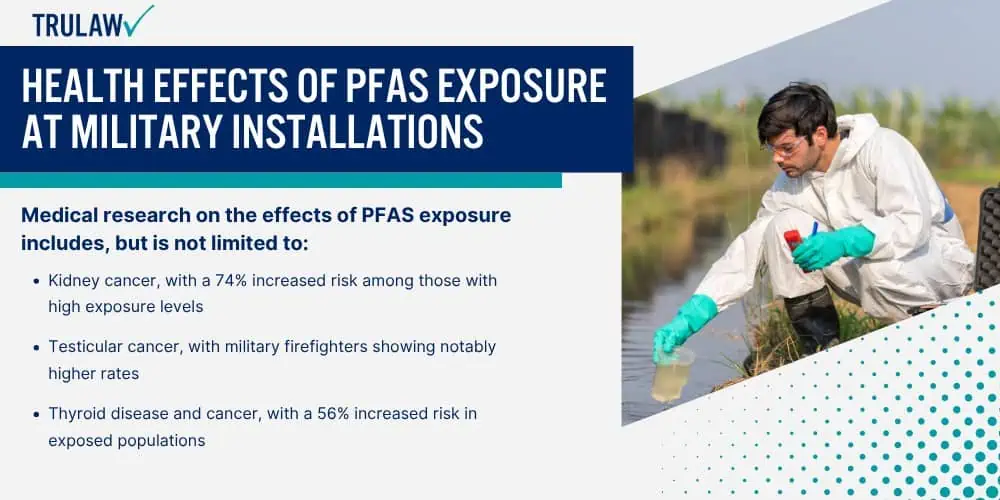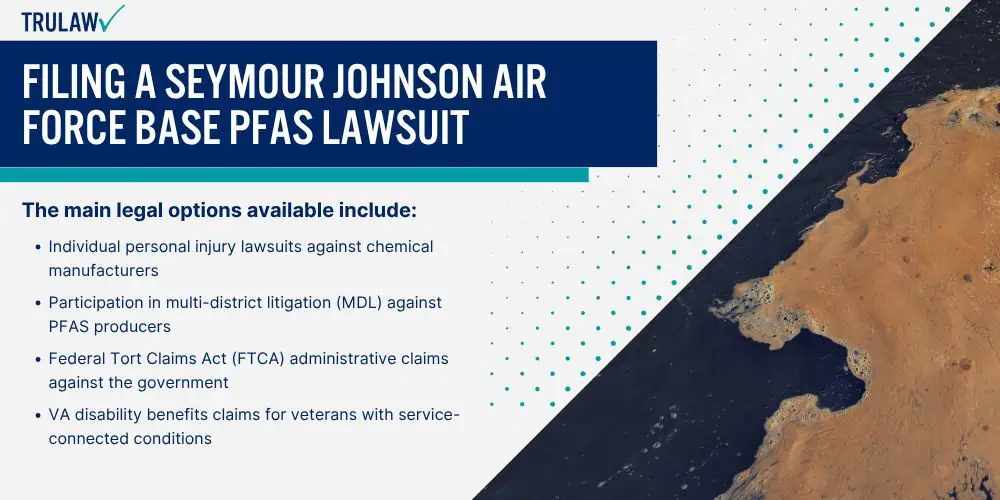PFAS contamination at military bases presents serious health threats to service members, families, and nearby communities.
These “forever chemicals,” primarily from firefighting foam used in training exercises, have seeped into groundwater at hundreds of military installations nationwide.

Scientific studies increasingly link PFAS exposure to numerous health problems, with certain patterns emerging among military populations.
The Department of Veterans Affairs has begun reviewing the connection between military PFAS exposure and specific diseases for possible presumptive status.
Medical Conditions Linked to Contaminated Water
Scientific research has established strong connections between PFAS exposure and several serious health conditions, with some showing particularly high prevalence among veterans.
Medical research on the effects of PFAS exposure includes, but is not limited to:
- Kidney cancer, with a 74% increased risk among those with high exposure levels
- Testicular cancer, with military firefighters showing notably higher rates
- Thyroid disease and cancer, with a 56% increased risk in exposed populations
- Ulcerative colitis and digestive system disorders
- High cholesterol and abnormal liver function tests
- Weakened immune response, including reduced vaccine effectiveness
- Pregnancy-induced hypertension and preeclampsia
The strongest scientific evidence supports the kidney cancer connection.
The National Cancer Institute confirmed higher blood levels of PFOA (one common PFAS) correlate with increased kidney cancer risk across diverse study populations.
In September 2024, the VA announced a formal review to potentially make kidney cancer a presumptive condition for veterans exposed to PFAS.
A landmark study published in the Journal of Exposure Science found elevated cancer rates in counties with known military PFAS contamination compared to national averages.
The research documented cancer clusters near bases with particularly high PFAS levels.
Long-term Health Risks for Military Personnel and Families
Beyond immediate health impacts, PFAS exposure creates concerning long-term risks, particularly for children and reproductive health in military families.
Research shows PFAS can cause:
- Developmental delays in children exposed during pregnancy or early childhood
- Reduced birth weight and early puberty
- Immune system dysfunction that persists into adulthood
- Behavioral changes and cognitive impairments
- Altered hormonal function affecting both male and female fertility
- Increased susceptibility to infections due to compromised immune responses
- Cardiac development issues, with higher rates of congenital heart defects
Children living on or near military bases face unique vulnerabilities.
Their developing bodies absorb proportionally more PFAS through water, and early-life exposure during critical developmental windows can have permanent health consequences.
Studies of children born to military families near highly contaminated bases have documented higher rates of birth defects and developmental disorders compared to national averages.
For veterans, PFAS exposure may continue affecting health decades after service ends.
These chemicals persist in the human body for years, with some having half-lives of over five years, meaning they remain at detectable levels long after initial exposure stops.
This prolonged presence explains why health effects often manifest years after leaving military service.
If you or someone you love has been exposed to PFAS at Seymour Johnson Air Force Base and developed serious health issues, you may qualify to seek compensation.
Contact TruLaw using the chat on this page to receive an instant case evaluation that can determine your eligibility to join others in filing a Seymour Johnson Air Force Base PFAS Lawsuit today.






